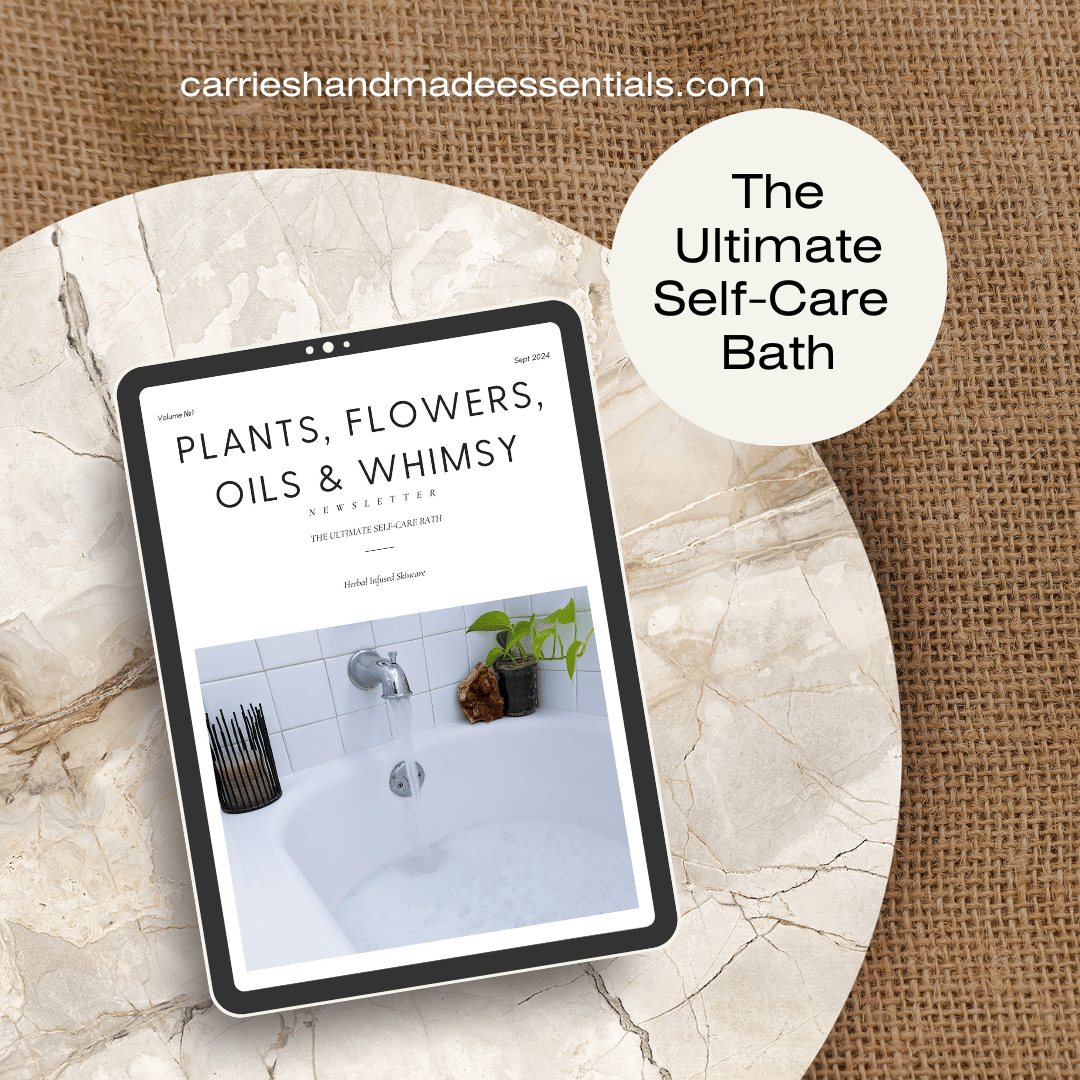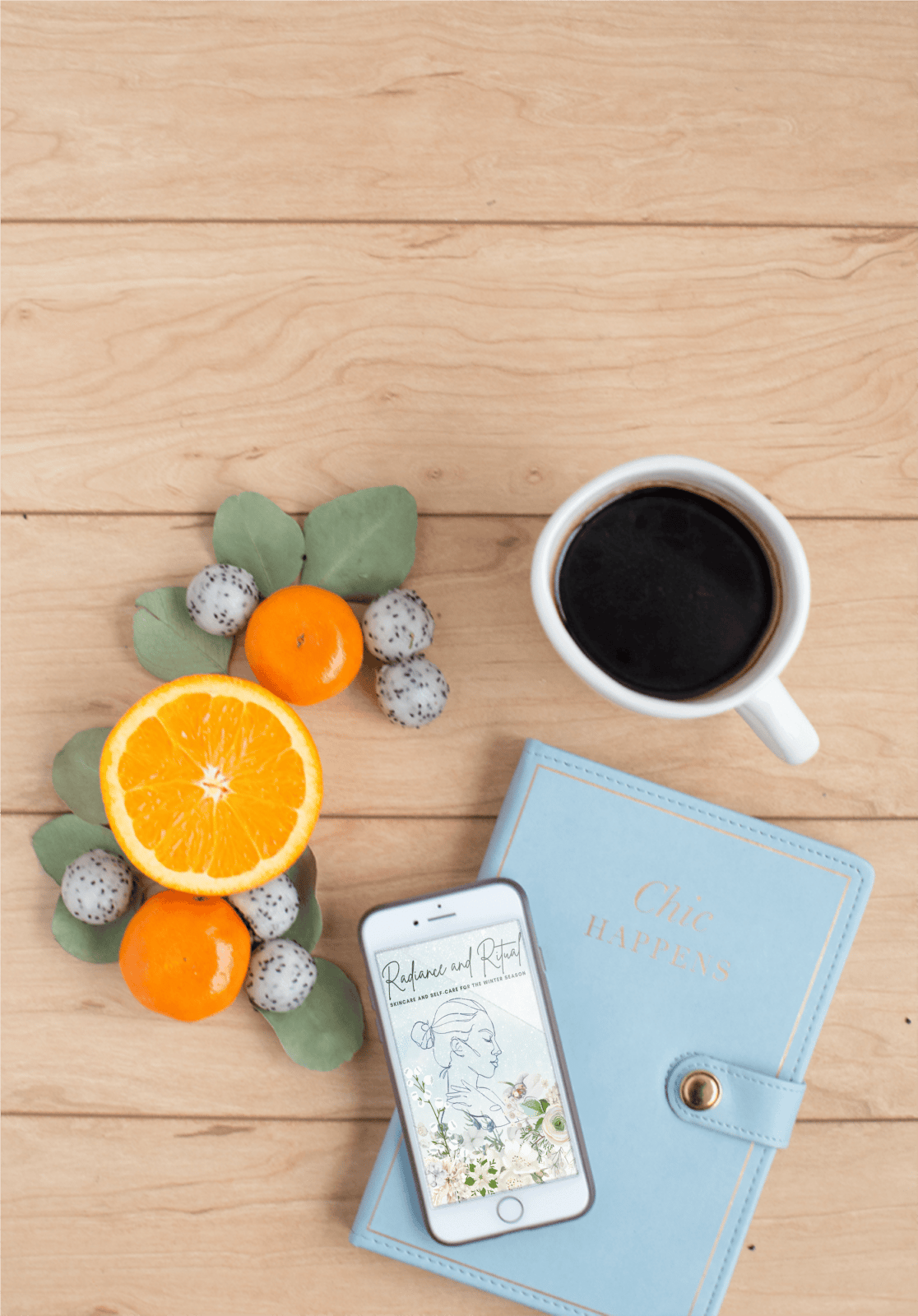The Benefits of Winter Baths and Ingredients for Skin-Nourishing Soaks
Winter weather is harsh on both our mood and our skin. Taking a bath isn’t just a way to get warm—it’s also a relaxing self-care ritual that supports your overall well-being and helps with winter skin issues.
The Benefits of Taking a Winter Bath
Sleep - Taking a bath before bed can help you fall asleep faster and adding oils like lavender, valerian, and chamomile make the bath even more helpful by lowering cortisol and helping to calm the nervous system.
Mental Clarity - Adding oils like lemon and bergamot to your bath can help lift an anxious or sad mood.
Helps with Digestion - Sitting in a warm bath improves blood circulation which helps digestion. Adding peppermint, lemon, and/or ginger to your bath can further help digestion.
Skincare - Cold air and indoor heating leave our skin dry. A warm bath with the right ingredients will replenish the moisture in our skin.
Soothes Muscles - When taking your bath with Epsom salts, try rosemary, lavender, peppermint, eucalyptus, chamomile, marjoram, clove, or basil essential oils.
Menstrual Cramps - Try cinnamon, rose, and lavender essential oils to help menstrual cramps. In a 2013 study it was found that cinnamon and rose essential oils were helpful in decreasing pain and bleeding associated with menstruation. Give yourself an abdominal massage with essential oils in a carrier oil starting in the week prior to your period. In a bath, with warm water to help relax the muscles, mix at least 2 tablespoons of carrier oil with essential oils and a cup of Epsom salts.
Headache - Soaking in a hot bath can help ease tension headaches. Try Epsom and/or Himalayan Sea salts with essential oils. Look in the essential oil blends section below or try peppermint, eucalyptus and lavender essential oils. Peppermint contains menthol and is known as a muscle relaxer.
Ingredients to Add to Your Winter Baths
1. Milk
Milk baths can make your skin feel soft and smooth. It will be gently exfoliated. They smell nice and feel luxurious and help us to relax. There are different types of milk of course. Their benefits will differ. You can use cow’s milk powder which is readily available in your local grocery store. You can also use goat's milk powder. It has a higher percentage of butter fat so it will feel creamier and more luxurious. You can also use nut milks if you are a vegan. I like to use coconut milk powder. It has a lovely smell and feels so nice. It is moisturizing and nourishing and can help prevent dryness and wrinkles.
2. Epsom Salt or Dead Sea Salt
Rich in magnesium, these salts relax muscles, soothe aches, and help detoxify your skin. Epsom salt is especially effective for relieving tension, while Dead Sea salt delivers additional minerals.
3. Oats
Soothing, moisturizing and anti-inflammatory. Is great for soothing itchy and sensitive skin.
4. Honey
It is a natural humectant with anti-microbial and healing properties make it a great addition to baths if you’re prone to breakouts or irritation.
5. Essential Oils
No matter what skin issue you are having, there is an essential oil that can help. Whether you need help for sensitive, oily, mature, dry skin, you can find one to help. Don't forget to mix them with a carrier oil before putting them in your bath,
- Lavender: Calms the mind and soothes irritated skin.
- Frankincense: Supports skin healing and hydration.
- Rose: Moisturizes and adds a luxurious floral aroma.
- Chamomile: Reduces inflammation and promotes relaxation.
6. Dried Herbs or Flowers
Make yourself a bath tea or just add them to your bath.
- Rose petals: Hydrate and tone the skin.
- Calendula: Heals dry or cracked skin.
- Chamomile flowers: Calm redness and irritation.
7. Oils and Butters
Add nourishing oils like jojoba, almond, or coconut oil to your bath for deep hydration. For an extra-luxurious touch, make some bath melts with shea butter or cocoa butter.
8. Clays
Bentonite or kaolin clay helps detoxify and clarify the skin. Just a small scoop mixed into your bathwater can make a big difference for tired winter skin. Clay is the most used ingredient in a detox bath as it is great in drawing toxins out of the body. Bentonite clay is the most used for baths but there are many different ones. There was a study done at Arizona State University in which it was concluded that bentonite clay could kill Staphylococcus, MRSA, E. coli and other pathogens. Clay can also help with digestive issues, skin allergies, sinus problems, headaches, and helps you recover from diarrhea and vomiting.
DIY Winter Bath Recipe: Hydrating Milk and Honey Soak
- 1 cup of powdered milk (or coconut milk powder)
- 2 tablespoons of honey
- 1/2 cup of ground oats
- 10 drops of lavender or chamomile essential oil in a couple tablespoons of carrier oil.
Mix these ingredients into your bathwater, stir well, and soak for 20 minutes to enjoy soft, hydrated, and glowing skin.
 |
$6.99
Plants, Flowers, Oils & Whimsy September Vol 1 - The Ultimate Self-Care Bath
🛀🏻🌿 Discover the art of caring for your skin with love and intention.
Are you ready to embark on a journey into the... Read more |
Embrace Winter this Year
Want to dive deeper into winter skincare and self-care rituals? Check out my book, Radiance and Ritual: Skincare and Self-Care for the Winter Season. Together, we’ll create winter skincare routines, explore self-care rituals, and even delve into journaling practices to nourish both your body and spirit.
 |
$8.99
e-book: Radiance and Ritual: Skincare and Self-Care for the Winter Season
Winter is a season of beauty and serenity, but it can also present challenges for our skin and well-being. In "Radiance... Read more |
Let’s make this winter your most radiant yet! 🌿
What’s your favorite winter bath ingredient? Share in the comments below!